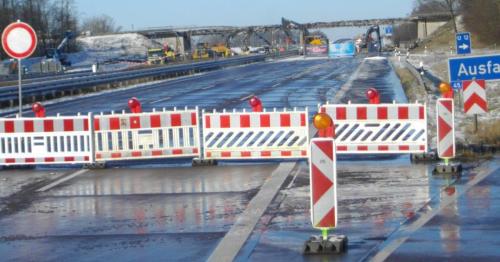Slovakia: New Penalties for Drivers and Fewer Restrictions for Trucks During Holidays

The Government of Slovakia approved on November 5 a draft comprehensive amendment to the Road Traffic Act. The changes are set to take effect on May 1, 2026, with the portion concerning driver training becoming effective a year later. The reform aims to improve road safety, enhance pedestrian protection, and enforce traffic regulations more effectively.
The amendment prepared by the Ministry of the Interior of the Slovak Republic includes, among other things:
- granting municipalities and towns new powers to measure speed and penalize traffic offenses,
- stricter sanctions for speeding drivers,
- introduction of a rehabilitation program for repeat offenders,
- new rules for the training and examination of driver candidates,
- and additional changes concerning cyclists, e-scooters, and truck traffic.
State Secretary of the Ministry of the Interior, Patrik Krauspe, emphasized that this is part of a broader strategy aimed at improving road safety and reducing the number of accident victims. In 2024, over 11,000 accidents occurred on Slovak roads, resulting in 262 fatalities and nearly 5,000 injuries. The new regulations are scheduled to enter into force on May 1, 2026, while changes regarding the driver training system will apply from May 1, 2027.
▶️ The most controversial change is the expansion of so-called objective liability. Municipalities and towns will be able to install stationary speed cameras and issue fines for certain offenses, including speeding, running a red light, failure to stop at a STOP sign, driving in the wrong direction, violating entry restrictions, or passing through a closed railway crossing. Importantly, the vehicle owner will not be able to avoid the fine by naming the person who was actually driving, similar to the system used for road tolls. However, the owner will be able to seek reimbursement from the driver. The ČESMAD Slovakia Association of Carriers has already opposed these changes during inter-ministerial consultations, warning that they could lead to abuses by municipalities and the use of cameras as a source of revenue rather than a tool to improve safety.
▶️ Pedestrians will be given greater priority at crosswalks, and drivers will be required to yield to anyone who clearly intends to step onto the crossing, not just those already on it. At the same time, pedestrians will not be allowed to step onto the roadway suddenly. The new regulations also apply to e-scooters and similar electric vehicles, which will not be permitted on sidewalks unless signs explicitly allow it. A new category of small electric vehicles will be introduced, with a speed limit of 25 km/h and a prohibition on installing seats.
▶️ Fines will remain at the same levels, but the speed thresholds at which they are applied will be lowered.
Fines ranging from €250 to €800 will be imposed for exceeding the speed limit by 31 km/h in urban areas and by 41 km/h outside urban areas (previously 51 km/h and 61 km/h).
Police officers will also be authorized to suspend a driver’s license on the spot.
▶️ A graduated sanction system will be introduced for drivers who repeatedly violate traffic regulations. Anyone who commits a serious offense three times within 12 months will be required to undergo a mandatory rehabilitation program with a transport psychologist and supplementary training. Upon a fourth offense, an additional health and psychological assessment will be required.
▶️ From 2027, the Category B driving test will be divided: candidates must first pass the theoretical part before beginning practical driving and taking the second part of the exam. This is intended to improve drivers’ theoretical preparation and reduce the number of failed exams. A minimum of lower secondary education will be required to enroll in the course, and candidates will be able to register for the exam online.
▶️ The ban on alcohol and intoxicants will also apply to passengers on motorcycles, quads, and multi-person bicycles.
▶️ Cyclists will be allowed to use the sidewalk until the age of 15 (currently up to 10 years old).
▶️ The ban on driving trucks over 7.5 tons during holidays will be shortened, and the list of exceptions expanded to allow travel to the final destination or transport of goods whose delivery cannot be delayed, such as in just-in-time production.







